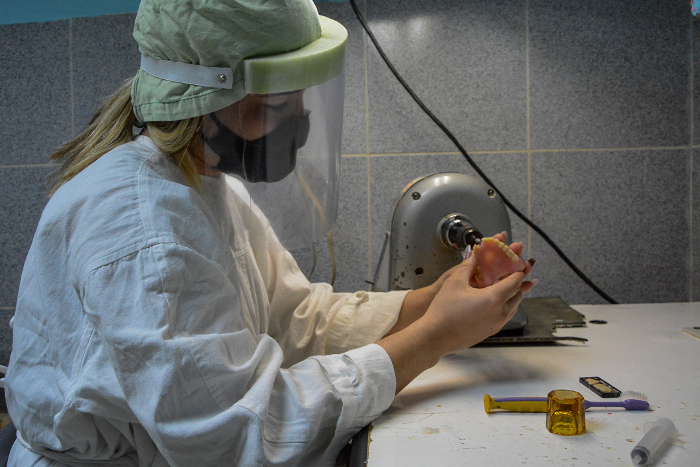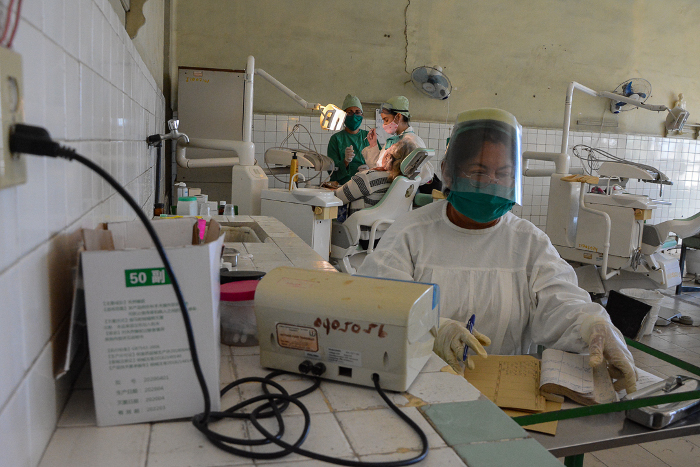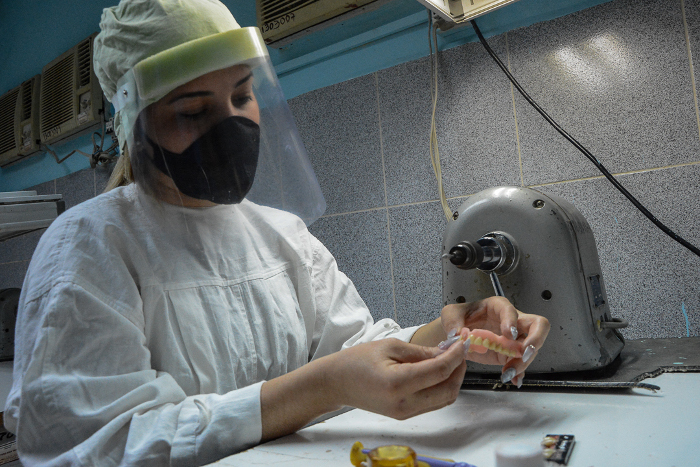CAMAGÜEY.- Among the experiences that she does not forget, Reydis Almira Leyva remembers that of a patient who arrived with a broken prosthesis in the first months of the pandemic, when she was working alone.
“So she had no cast to take the impression and make a new one, but the lady looked desperate and she asked me to do something. I took a risk and tied the one she was wearing by eye and everything went well, it was perfect. She still comes around here all the time to say hello ”.
One of her companions says that Reydis has a good hand because her work is an art: "It is not easy to put tooth by tooth where it has to go, or to personalize each job, because no mouth is the same."

She tells us that she has a maxillofacial cousin, and when she went to her consultations she liked what she saw and heard. Since then she said that she would study something similar and at the right moment she decided on the mid-level technician in Dentistry Prosthesis.
She is one of the young women who defines herself as happy, because as she herself affirms: "I love what I do, and if I had to decide again, I would choose the same, although it requires a lot of observation, patience, meticulous and very responsible."
If dental clinics provide only emergency services today, it is not only due to COVID-19.
According to information provided by Dr. Isael Armando Pérez Vázquez, director of the La Vigía teaching dentistry clinic, in the midst of the pandemic the resurgence of the blockade has caused a shortage of material resources such as white and yellow plasters, paraffin, and supplies important to guarantee hygienic-sanitary measures such as gloves, soap, detergent.
A simple comparison between 2018 and 2020 shows a decrease in 6,700 fillings, equivalent to about 5,000 patients, because while in 2018, 22 amalgam kits were received, each with 500 capsules, in 2020 only six entered.
The same happened with the brackets used in fixed appliances for the correction of malocclusions at the second level of care, since only 17 of the 214 planned for last year were performed.
"The same happens with the equipment, many need repair or replacement because they have completed their operating time, and they cannot be assigned to us because the country has not been able to acquire them," added the 2nd Degree specialist in Comprehensive General Dentistry and in Health Organization and Administration.
These statistics are multiplied in each clinic or center of the province, of the country, and likewise the effort of many like Reydis to fill the gaps is multiplied.

With only three years of work experience at the La Vigía teaching dentisyry clinic, she continues to excel and take advantage of graduate courses while she anxiously awaits the opportunity to enroll in a bachelor's degree.
Her contribution to face so many deficiencies was included in an educational strategy for the care and use of the prosthesis, recognized in the Territorial Teacher's Day.
There she advises to place the prosthesis in the palm of the hand to wash it, especially if it is lower, never grasp it by the ends; brush with soap, not bleach or dishwasher, and overnight place it in a glass of water. This way they will be able to keep it for longer, another way to reduce victims of the blockade.
- Translated by Linet Acuña Quilez

